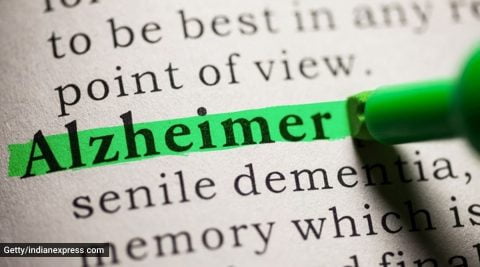Medically Reviewed by:
Khushal Girigosavi, a peer reviewer at the Cureus Journal with numerous research papers to his name, maintains high standards in medical research.
Have you ever found yourself forgetting where you put your car keys, or struggling to remember someone’s name? It’s natural to have occasional memory lapses as we age, but what if these forgetful moments start happening more frequently? In some cases, they could be warning signs of early-onset dementia.
Dementia is not a specific condition but a generalised term used for the impaired ability to think, remember or make decisions that interfere with the individual’s ability to perform everyday activities. Though it is most commonly associated with ageing, it is not a normal part of it. Dementia can affect individuals as young as their 40s or 50s, and it’s important to be aware of the signs.
Alzheimer’s is the most common type of dementia. Though dementia mostly affects older adults, it is not a part of normal ageing. Early-onset dementia refers to the development of dementia before the age of 65, and while it might be less common than late-onset dementia, it still affects a significant number of individuals.
Understanding the signs of early-onset dementia is crucial for both individuals who may be experiencing them and their loved ones. It enables early detection and intervention, which can significantly improve quality of life and provide access to appropriate care and support.
In this blog post, we will explore the 10 key signs of early onset dementia, helping you recognize the warning signals and understand what steps to take if you suspect you may be experiencing cognitive decline. Let’s dive into the world of dementia symptoms and learn how to differentiate between normal forgetfulness and something more serious.
Signs to look out for:
As we age, it’s natural to have concerns about our cognitive health. Many of us may wonder if we are experiencing the early signs of dementia. It’s important to remember that forgetfulness and occasional memory lapses are a normal part of ageing. However, if you’re worried about your cognitive abilities and suspect early-onset dementia, there are certain signs to look out for.
1. Memory loss: One of the most common signs of early dementia is memory loss which affects daily life. You may find yourself forgetting important dates, events, or recent conversations. Misplacing things frequently and struggling to retrace your steps can also be a red flag.
2. Difficulty with familiar tasks: Another sign is struggling with tasks that were once familiar and easy. You might face challenges cooking a meal, following a recipe, or using household appliances. This difficulty can be frustrating and cause confusion.
3. Language problems: Early onset dementia can also affect language abilities. You may struggle to find the right words or experience difficulty understanding conversations. Expressing yourself clearly might become increasingly challenging. You may also experience difficulty in conversations, frequently searching for words or using incorrect words unknowingly.
4. Disorientation: Feeling disoriented in familiar places can be a sign of cognitive decline and decline of cognitive age. If you frequently get lost in well-known neighbourhoods or struggle with spatial awareness, it’s important to take note.
5. Poor judgment and decision-making: Making poor decisions or displaying impaired judgment can indicate early dementia symptoms. You may make choices that are out of character or put yourself in unsafe situations without realizing the potential risks.
This could manifest in financial matters, personal hygiene, or safety concerns like leaving the stove on. You may also make impulsive purchases, fall prey to scams easily, or exhibit socially inappropriate behaviour.
6. Personality changes: A significant shift in personality or mood can be an indication of cognitive decline. Individuals may become more irritable, anxious, depressed, suspicious, or withdrawn compared to their usual behaviour. If you notice uncharacteristic irritability, anxiety, depression, or changes in social behaviour, it’s essential to seek further evaluation.
7. Impaired problem-solving skills: People with early onset dementia often face difficulties solving problems or planning ahead. Complex tasks like managing finances or following instructions might become overwhelming.
| Fact box: The symptoms of dementia can manifest themselves by affecting the everyday activities in your life. Some of these are: Changes in visual perception are another red flag for early dementia. You may experience difficulty judging distances or recognising objects and patterns accurately. It can have a negative impact on an individual’s motor skills, leading to clumsiness, stumbling, or difficulty with simple movements like buttoning a shirt or tying shoelaces. You might struggle to follow instructions, plan and organize tasks, or find it hard to concentrate on complex activities.You might find it increasingly difficult to manage multiple tasks simultaneously or switch between them fluidly. You might struggle with remembering names and faces, leading to feelings of embarrassment or isolation. |
8. Loss of initiative: Early dementia symptoms may also include a loss of initiative or motivation. You might find yourself becoming less engaged in activities you used to enjoy or neglecting hobbies and interests. This can stem from a lack of motivation, difficulties planning and initiating activities, or a general decline in cognitive abilities.
9. Withdrawal from social interaction: Withdrawing from social activities and isolating oneself is another sign to be mindful of. This can be due to a combination of factors such as difficulties with communication, memory issues, and changes in mood.
If you notice a sudden decline in social engagement or a lack of interest in maintaining relationships, it could be related to early-onset dementia.
10. Gradual decline in cognitive abilities: Perhaps the most telling sign is a gradual decline in cognitive abilities over time. This decline may not be immediately noticeable, but if you or your loved ones observe a consistent deterioration in thinking skills, it’s crucial to consult a healthcare professional.
Remember, experiencing one or two of these signs doesn’t necessarily mean that you have early-onset dementia. However, if you are concerned about your cognitive health and notice several of these warning signs, it’s important to seek medical advice for a comprehensive evaluation and proper diagnosis.
Conclusion
It is essential to be aware of the early signs of dementia and to seek professional help if you suspect that you or a loved one may be experiencing cognitive decline. Remember, knowledge is power, and understanding the symptoms can lead to early diagnosis and appropriate interventions.
If you resonate with any of the ten signs mentioned in this blog, it is crucial not to panic but to take proactive steps towards understanding your condition better. Reach out to a healthcare professional who can guide you through the diagnostic process. They may recommend specific tests or assessments that can provide more clarity about your cognitive functioning.
There are tests available to help diagnose dementia and determine the appropriate course of action. Whether it’s a memory test or cognitive assessment, these tests can provide important insights into your brain health. Seeking professional guidance will ensure you receive the necessary support and treatment tailored to your needs.
Don’t hesitate to ask for support from your family and friends. Let them be part of your journey towards better brain health. Remember, you are not alone in this. There are numerous resources and assistance available that can help you manage dementia symptoms effectively.
At liveivory.com, we strive to empower individuals like you with knowledge about neurological conditions. Our team of experts is here to answer any questions or concerns. Visit our website to learn more about dementia and other neurological conditions.
Remember, early intervention is key when it comes to managing dementia. By being proactive and seeking support, you are taking an important step towards maintaining a high quality of life for yourself or your loved one. So don’t hesitate – reach out today and let us help you on this journey!




